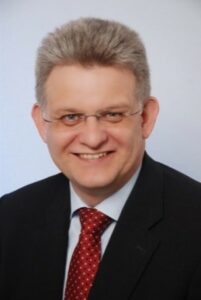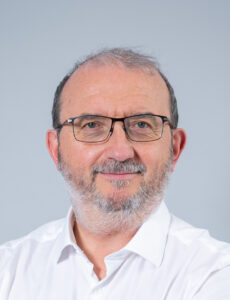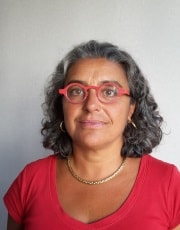Dr Ralf Kaminsky – ERRAC Chair

From 1994 until 2000 Ralf worked as a scientific researcher at the Institute of Railway Construction and Operation, University of Hannover and worked on several projects on operational planning and timetabling.
In 2001 he joined Siemens Mobility and held different positions mainly in the field of mainline signaling. Among others, he led the strategy department for the business in Germany, was responsible for the business with on-board equipment and was Director for Mainline Regulation & Standards within the Product and Portfolio Management. Currently, he is heading the group for Technology Collaborations in the CTO department.
All along he has represented Siemens in different Committees (UNIFE, UNISIG; VDB, ERRAC) and EU-funded projects. Recently Ralf was intensively involved in the set-up of the ERJU especially in the newly built System Pillar.
Mr. Christophe Chéron – ERRAC Vice-Chair

In 2012, he was seconded to the PREDIT secretariat (French research and innovation programme for surface transport) at the Transport Ministry. He participated in the grant process for the transport part of the Programme Investment for the Future (PIA) and in various research programs and projects at both national (IRT Railenium) and European levels (Shift2Rail, serving as the French representative in the States Representatives Group, DEUFRAKO, Eranet Transport 3, Eranet Electromobility+).
In 2016, he rejoined SNCF Innovation and Research to coordinate SNCF’s participation in Shift2Rail and to manage research partnerships. He has also been involved in defining the JU Europe’s Rail. Since 2021, he has served as SNCF’s representative on the Europe’s Rail Governing Board and the System and Innovation Programme Board, coordinating SNCF’s activities in Horizon Europe. He is also a member of the ERRAC Steering Committee.
Dr Marion Berbineau – ERRAC Vice-Chair / PAG Chair

Marion plans to contribute to strengthening the participation of academics in railways and major European programs, such as ERJU, promoting a cross-fertilization approach. She also plans to define specific actions within the ERRAC PAG, such as student competitions, to actively promote the involvement of young researchers and women in railway research.